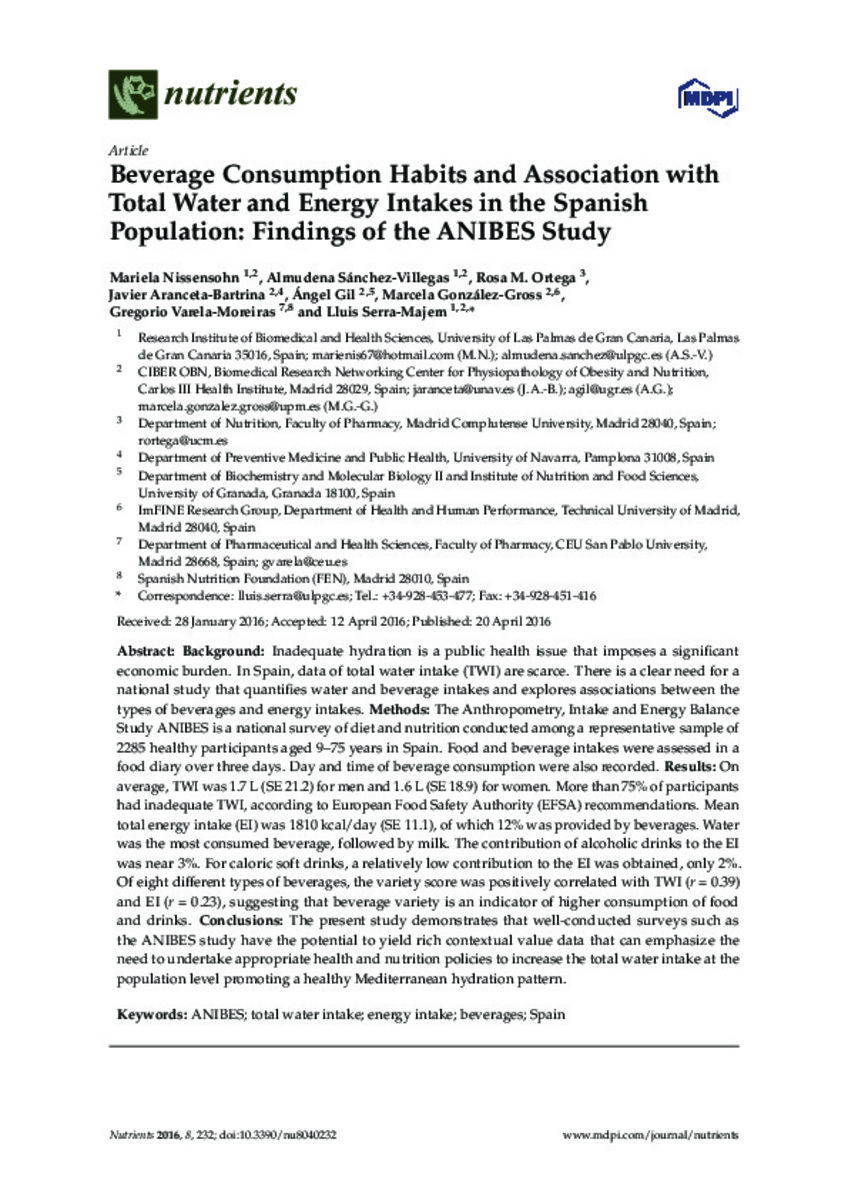Beverage Consumption Habits and Association with Total Water and Energy Intakes in the Spanish Population: Findings of the ANIBES Study
Palabras clave :
Materias Investigacion::Ciencias de la Salud::Salud pública
ANIBES
Total water intake
Energy intake
Beverages
Spain
Fecha de publicación :
2016
Nota:
Creative Commons Attribution License 4.0
Cita:
Nissensohn M, Sánchez-Villegas A, Ortega R, Aranceta-Bartrina J, Gil Á, González-Gross M, et al. Beverage Consumption Habits and Association with Total Water and Energy Intakes in the Spanish Population: Findings of the ANIBES Study. Nutrients [Internet] 2016 Jul;8(4):232.
Aparece en las colecciones:
Estadísticas e impacto
0 citas en

0 citas en

Los ítems de Dadun están protegidos por copyright, con todos los derechos reservados, a menos que se indique lo contrario.








